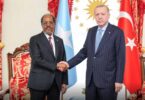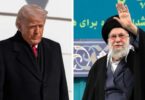A Verdict That Reconfigured a Nation
On 17 November 2025, the International Crimes Tribunal (ICT), functioning under the authority of the Bangladesh’s interim unelected government, sentenced former Prime Minister Sheikh Hasina to death in absentia. The supporters advocating in favour of the interim administration viewed the verdict as a decision on long-awaited accountability. However, the verdict has raised several questions with regards to due process, democratic legitimacy and whether the trial served less as an actual impartial application in judicial proceeding and more as a step directed in a political overhaul.
Sheikh Hasina’s governments oversaw sustained GDP growth, poverty reduction, technological modernization, regional peace initiatives, and global recognition for sheltering Rohingya refugees. Her political influence remained in Bangladesh even after she was ousted during a period of domestic upheaval.
Bearing these facts in mind, her conviction can be comprehended in the context of political rivalry, institutional reordering, and a power vacuum. The question being raised is not simply limited to whether Hasina committed crimes but also in regards to the process that condemned her.
To examine the verdict through a foreign-policy and legal lens, placing Bangladesh’s political development alongside international norms, it is imperative to analyse the proceedings against Hasina, present concerns for rule of law, constitutional integrity, and the credibility of Bangladesh’s transitional institutions.
The Political Atmosphere Behind the Tribunal
Bangladesh’s 2025 tribunal must be viewed through the prism of the ecosystem which has been shaped by institutional interests, political opportunities, and historical grievances as pandered by the current authority in power.
An Interim Government Seeking Legitimacy
It is vital to note that interim governments, by definition, lack electoral legitimacy. Their primary objective is to seek stabilization, not retribution. However, in Bangladesh’s case, the interim administration led by Muhammad Yunus faced a population fractured by prior protests and political violence. In such cases, conducting high-profile prosecutions against former leaders often becomes a way for transitional governments to mount the power and execute their strength, while discrediting the former leaders or political elites, and by portraying themselves as advocates of reform and justice. This may be a political logic on basis of which the interim government may have deployed the actions.
Such a decision also raises concerns that retrospective justice in polarized societies, such as in the case of Bangladesh, may delegitimize the judiciary and may provide a precedent for the application of legal procedures for partisan gain, as seen in Pakistan. This also provides a dubious environment for foreign investors and international agencies, who may undermine country’s governance and investment climate.

Understanding the International Crimes Tribunal: Questions of Structure and Procedure
Even though the ICT was created for 1971 war crimes, its mandate was expanded and adapted by the interim government to prosecute modern political events. This structural adaptation raises several issues.
Examining the scenario from a legal-governance perspective, the ICT’s position is problematic for three reasons:
- The ICT reports directly to an unelected executive authority.
- Judicial appointments were revised during the crisis period.
- The present evidentiary standards also differ from traditional criminal courts.
The Trial in Absentia
In accordance with the international law, including ICCPR Article 14, European Court jurisprudence, and UN Human Rights Committee commentary, the trials in absentia are only permissible when:
- The defendant voluntarily absconds,
- Is given an opportunity to appear present themselves.
- Is represented by counsel of their choosing.
In case of Hasina, none of the above-mentioned criteria was met and this was also confirmed by Hasina’s team.
A trial for a capital punishment case held without the defendant present is uncommon in contemporary law. In such case, the standard practice dictates the accused would be granted a complete retrial upon their return. However, the tribunal’s own charter fails to ensure this right.
India’s Calibrated Position
India’s response was cautious as New Delhi responded “Noted” to the verdict and emphasized peace, stability, and democratic inclusion in Bangladesh.
New Delhi has stayed clear of any explicit endorsement.
India is concerned about due process and the precedent this sets in the region. Providing asylum to Hasina without formally acknowledging her political claim reflects a careful balancing act between humanitarian responsibility and regional diplomacy for India.
Human Rights and Legal Bodies React
UN rights mechanisms and Human Rights Watch has expressed serious concerns with regards to death penalty, fairness of the proceedings, the political context of the trial and the omission of the right to defend oneself.
While analysing from a pro institutional integrity, three themes have emerged from the current development:
- The tribunal expanded its mandate beyond its intended remit.
- Procedural safeguards were insufficient.
- The trial risks creating a precedent for political retaliation.
LEGAL REBUTTAL OF THE CHARGES AGAINST SHEIKH HASINA
Charge 1: Ordering the Use of Lethal Force Against Protesters
Tribunal’s Claim
Hasina directly ordered the deployment of weapons, drones and helicopters, against demonstrators/protesters.
Rebuttal
- Lack of Verifiable Evidence
The prosecution relied heavily on alleged recordings and intercepted communications. International forensic verification was limited or absent.
- Ambiguity in Chain-of-Command
In crisis, operational decisions lie with security chiefs, not the Prime Minister. The tribunal provided no clear chain-of-command mapping to support the allegations.
- Absence of Authentication Standards
Under international evidentiary norms, digital evidence requires the metadata analysis, independent forensic certification, validation of chain of custody. These were either overlooked or ignored or conducted internally.
- Contextual Misinterpretation
Several Governments including Western democracies have deployed force during violent upheaval or crisis. The tribunal refused to acknowledge expert testimony on comparative standards.
Charge 2: Incitement to Commit Crimes
Tribunal’s Claim
Statements made by Hasina motivated violence or repression.
Rebuttal
- Political Speech Protections
Under ICCPR and international jurisprudence, political speech or even harsh or provocative statements, is not considered incitement unless it directly and intentionally calls for violence. No such evidence was presented.
- Selective evidentiary Quotation presented.
The prosecution used isolated excerpts without full transcripts, omitting the context.
- Failure to Demonstrate Mens Rea
The tribunal failed to establish intent under any recognized legal standard (dolus directus or even dolus eventualis).
Charge 3: Failure to Prevent Crimes (“Command Responsibility”)
Tribunal’s Claim
Hasina failed to prevent security forces from committing abuses.
Rebuttal
- Command Responsibility Requires Effective Control
Effective control means the ability to issue and enforce direct orders. In Bangladesh’s administrative structure, day-to-day operational control over police and paramilitary units is delegated.
- Temporal Uncertainty
Many alleged abuses occurred simultaneously across several districts, raising questions about whether real-time prevention was logistically possible.
- Lack of Evidence Showing Knowledge
International tribunals need the appropriate proof that the leader knew or should have known about specific actions. The ICT inferred this without demonstrating it.
- Hypocrisy in Application
In several similar cases globally (e.g., Indonesia, Pakistan, Egypt) the verdict did not equate to a capital punishment or in-absentia judgment without defence counsel.
Charge 4: Crimes Against Humanity
Tribunal’s Claim
The events led to a widespread and systematic attacks on civilians.
Rebuttal
- Threshold Not Met
Crimes against humanity require widespread or systematic targeting, policy-level coordination and intent to target civilians as civilians. These conditions were not established by the tribunal.
- No Established State Policy of Attacking Civilians
Hasina’s government, operated under a constitutional framework with no evidence of systemic targeting of civilian populations.
- Evidence of Attempts at De-escalation
Multiple public addresses, negotiations, and official directives emphasized restraint by the Hasina government. These were exempted from the prosecution’s narrative.
Charge 5: Personal Responsibility for All Related Deaths and Injuries
Tribunal’s Claim
Hasina is personally accountable for all casualties.
Rebuttal
- Overbroad Attribution
International law rejects automatic attribution of all crisis deaths to the head of government without granular causation.
- Political rather than Legal Reasoning
The prosecution’s theory aligns more with political accountability than criminal liability.
- Absence of Proportionality and Necessity Analysis
Tribunal failed to differentiate between lawful use of force, excessive use of force, and unlawful killings.
The political incentives at play:
The interim government benefits from positioning Hasina as illegitimate. The opposition political parties gain by deconstructing her legacy.
Bureaucratic actors benefit from removing a dominant figure who historically constrained them.
International competitors may prefer a weakened Bangladesh. Political trials often attack not just individuals, but the complete movement in entirety. The current sentencing may be comprehended as an effort to permanently topple the perceived inevitability of her political return in Bangladesh.
Balancing Between Justice and Politics
Sheikh Hasina’s death sentence represents the convergence of law, power politics, and transitional governance. The procedural deficiencies of the tribunal have raised fundamental questions about justice, legitimacy, and the future of democratic norms in Bangladesh.
When due process is compromised, the consequences will not be limited to a specific individual but the entire nation.
Bangladesh sits on crucial juncture, whether it will commit to a fair and impartial justice or choose selective prosecution for a politically motivated agenda of some.
Bangladesh’s actions will be scrutinized on not just how Sheikh Hasina is judged, but also the credibility of the system that seeks to judge her.
More on Bangladesh related topics:
Bangladesh Makeover: https://www.thestrategicperspective.org/bangladesh-makeover/
The BanPak Affair: https://www.thestrategicperspective.org/the-banpak-affair/
Unfinished Agenda of Mohd Yunus: https://www.thestrategicperspective.org/unfinished-agenda-of-mohd-yunus/
Re-emergence of AQIS poses a threat in the Indian subcontinent: https://www.thestrategicperspective.org/aqis-the-reemerging-threat-in-the-indian-subcontinent/
Pakistan, Bangladesh and Sri Lanka Stock Exchanges unite: https://www.thestrategicperspective.org/pakistan-bangladesh-and-sri-lanka-stock-exchanges-unite/
New terror outfit launched in Bangladesh: https://www.thestrategicperspective.org/new-terror-outfit-launched-in-bangladesh/
Whither Bangladesh: https://www.thestrategicperspective.org/whither-bangladesh/
Bad Vibes from Bangladesh and Bhutan: https://www.thestrategicperspective.org/bad-vibes-from-bangladesh-and-bhutan/










